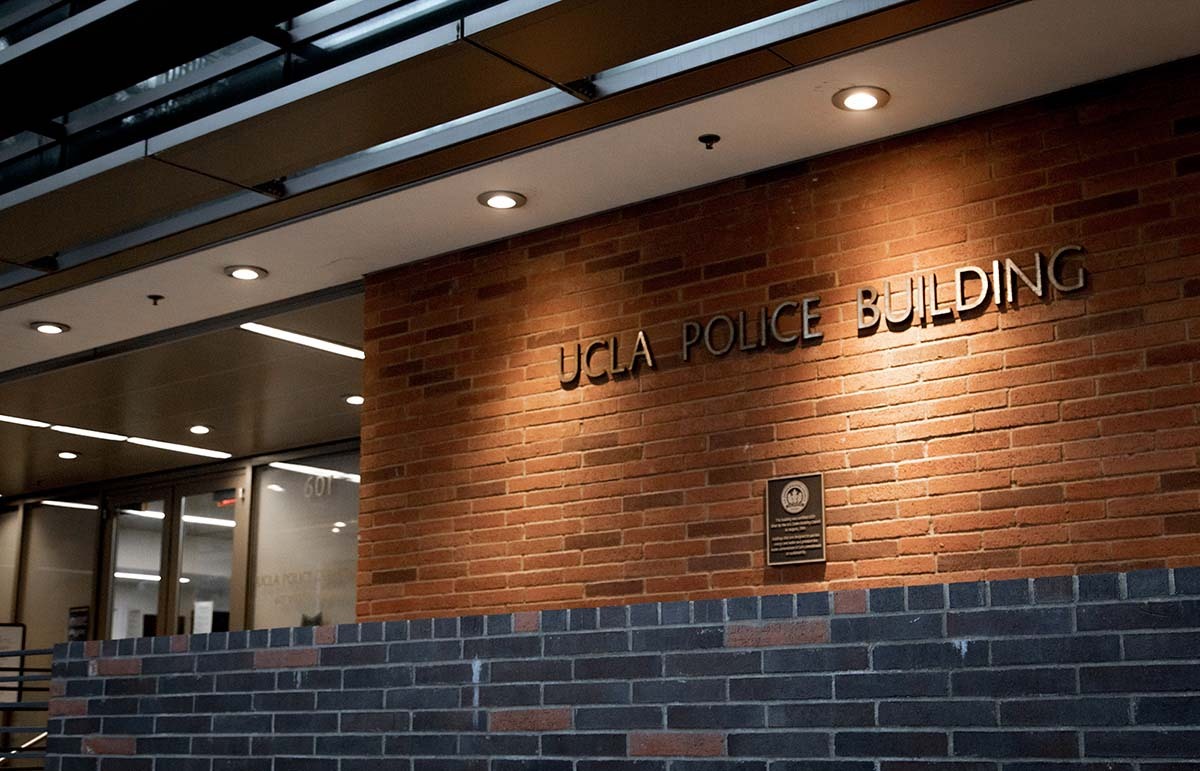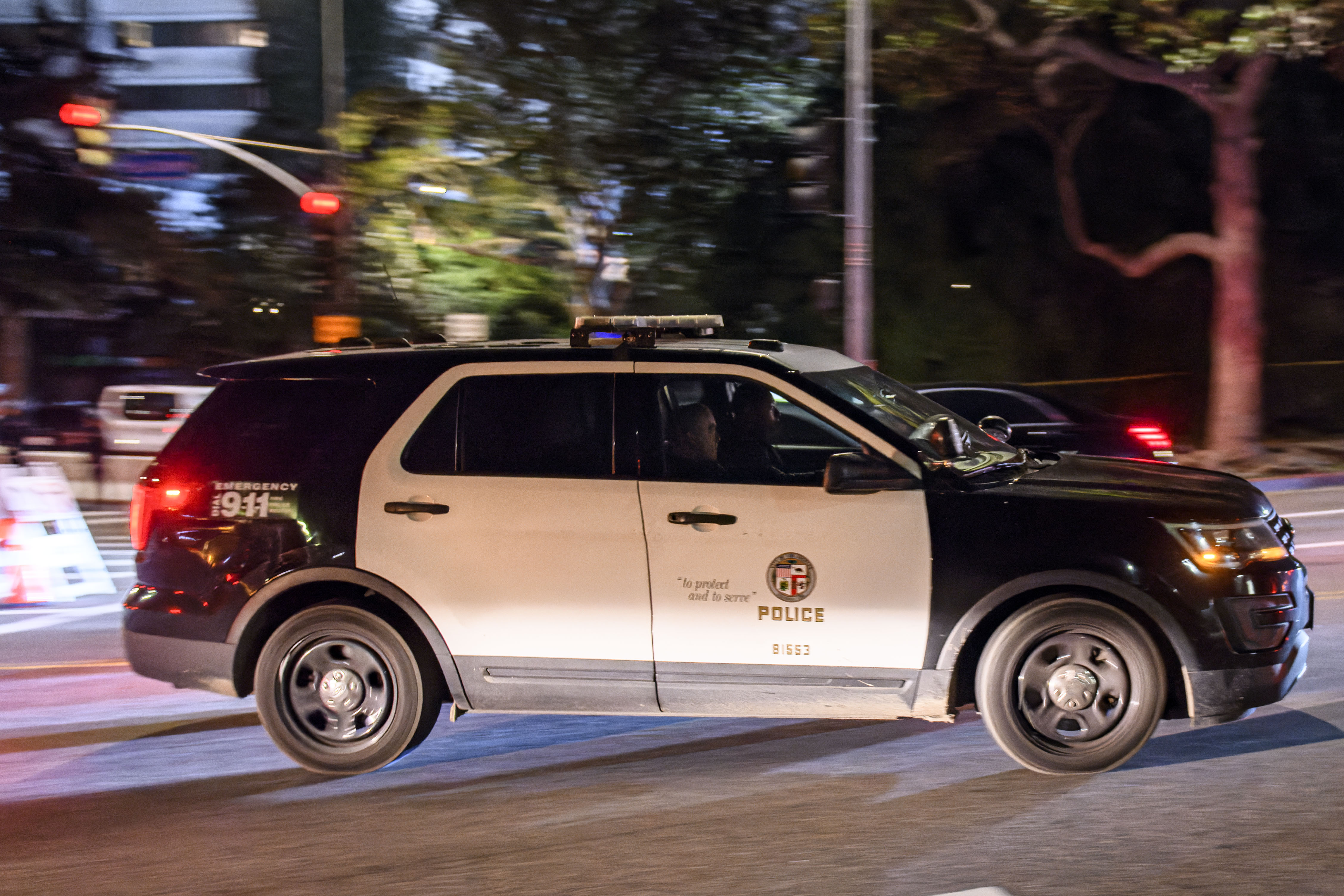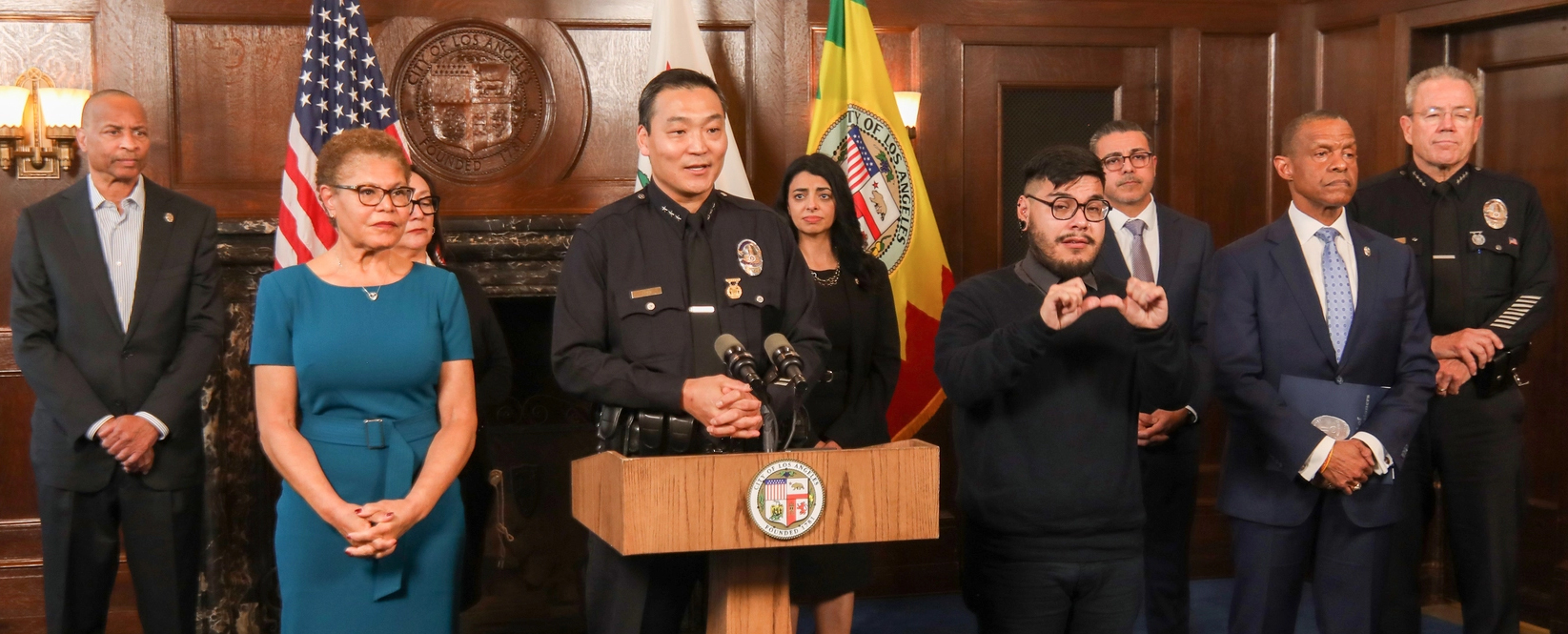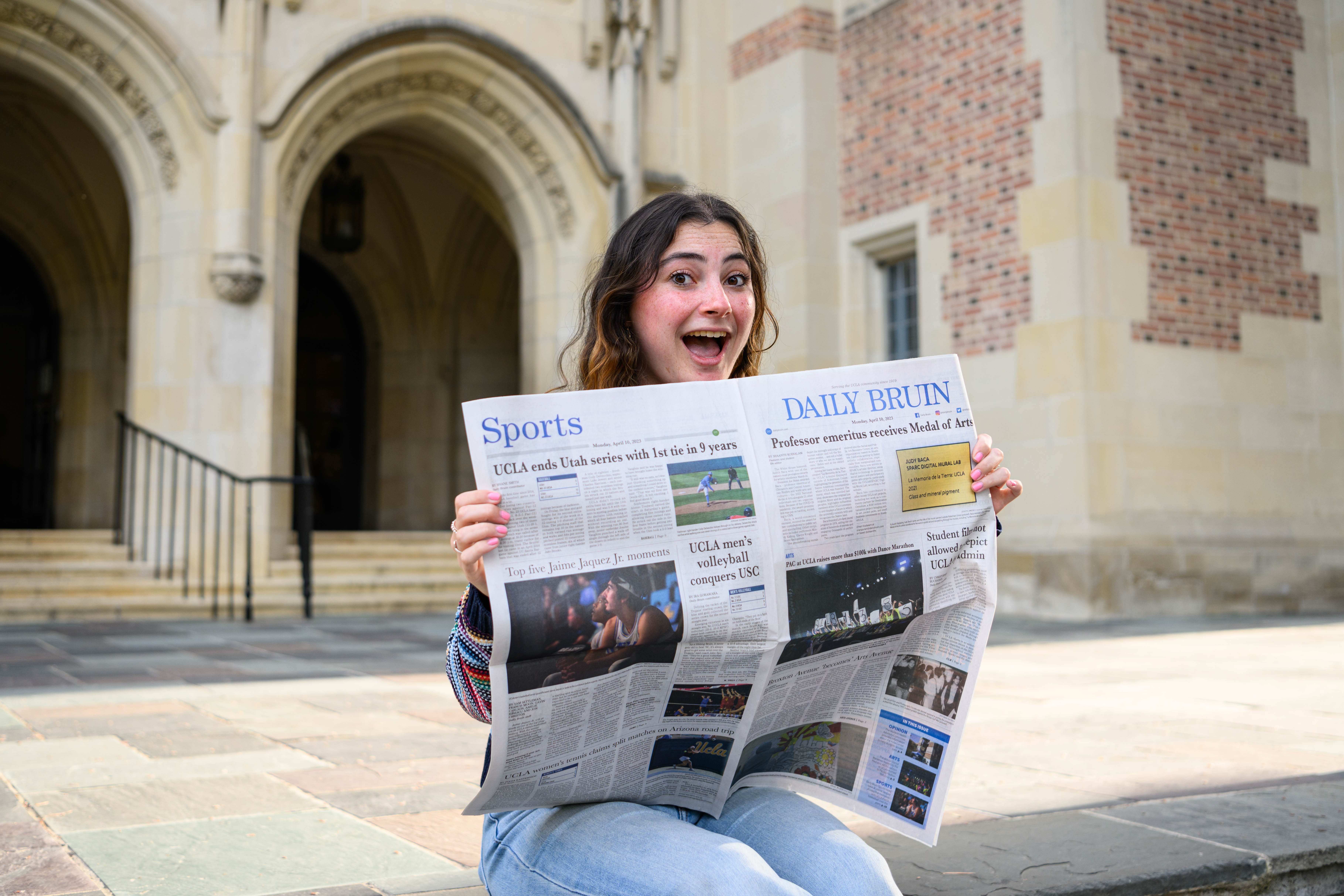Q&A: John Thomas shares lessons from past careers, goals as new UCLA police chief
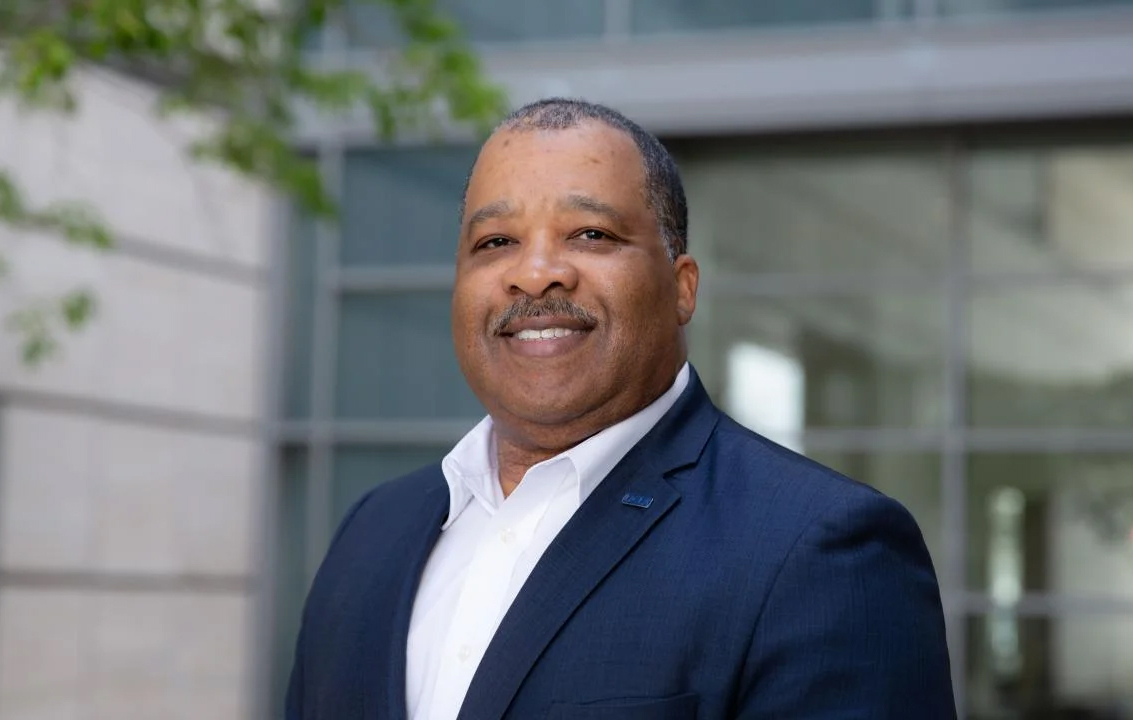
John Thomas, UCLA’s new police chief, is pictured. Thomas sat down with Daily Bruin’s city and crime editor, Sharla Steinman, to discuss his new role and how his past experiences have equipped him to serve UCLA’s campus. (Courtesy of UCLA)
By Sharla Steinman
Feb. 12, 2024 9:49 p.m.
This post was updated Feb. 13 at 10:27 p.m.
John Thomas was appointed as UCLA’s police chief Jan. 11 after serving as interim chief since December 2022.
Thomas, who attended UCLA from 1980 to 1984, previously served at the University of Southern California, holding positions including police captain, assistant chief, executive director and chief. He was also a special advisor to the senior vice president for administration.
Thomas sat down with Sharla Steinman, the Daily Bruin’s city and crime editor, to discuss his new role and how his past positions have prepared him to be chief.
This interview has been edited for length and clarity.
Daily Bruin: What have you learned while serving as the interim chief? How will you take the lessons you’ve learned and apply them to your new role?
John Thomas: Over the course of the year, I’ve learned that there’s definitely a difference between being the chief at USC and being the chief at UCLA – the cultural nuances of UCLA being a public institution and USC being a private institution.
One of the most important things I learned about UCPD is that it’s a much smaller department than USC. I had about 300 officers at USC, and I’ve got about 65 (at UCLA), and we’re underdeployed by 14 or 15 officers, so a much smaller footprint.
What I also found out was (there are) very dedicated officers in the department. Where do they see themselves in this time and place, not only in UCLA’s history but also in the history of modern policing and the demands and expectations post-George Floyd?
I learned that the officers are extremely dedicated and that it is also a very young department. To my surprise, there are quite a few alumni in the department, which is not something that I expected. I found out there’s a great desire to reconnect with students from our officers. I also found that there seem to be some barriers. I think our officers believe students don’t want those relationships. We’re going to have to put in the work to take those extra steps so that we can get to a better partnership.
Those are some of the most important things I learned over the course of my year and, fortunately, having been a student at UCLA, no one had to teach me about Bruin pride or anything like that.
When I sit down and talk to the officers, they understand where we’re at, which is a difference between the previous generation and the post-George Floyd (generation). I’m hearing that they want to be a part of the transformation of law enforcement. They see things through the lens of having gone through that, and they don’t want to be a part of that. They want to separate. I really applaud them for getting their degrees at UCLA and then deciding to serve this university in this capacity, because they could do a lot of other things as well.
DB: What do you hope to accomplish during your time as chief at UCLA?
JT: It’s a great honor to be in this position, particularly after I had already retired. This is the only job I would have ever come out of retirement to do.
I want to be a part of that transformation. I want to help our department reconnect with our student population and the community at large. I think there are so many great opportunities for students and others to be a part of this transformation, because I firmly believe law enforcement is not going to make this transformation successfully if left to itself.
The times demand that we partner in nontraditional ways to get to where we need to go. The success is going to be predicated upon what degree we allow our community to be a part of the very fabric of how we police UCLA and the surrounding community. What I want my legacy to be is that, by the time I leave, there is a fusion of input by our stakeholders in how we perform our jobs, and there’s a shared responsibility for the safety of that community.
DB: Can you tell me about the positions you’ve held in the past, and how you think they have prepared you for your position today?
JT: Growing up in LA, particularly in South LA, (I had) some pretty negative encounters: being stopped by the LAPD, sheriff’s department, you name it. One of the hardest things for me as a UCLA student was my commute from Westwood to South Central, where I would get stopped for absolutely nothing.
I understand implicit bias. I understand the damage that biased policing has on marginalized people. I get that. I think that’s an important piece, but also going through LAPD and primarily serving in South Los Angeles, (I got) a real good sense of the need for building those relationships and outreaching to the people that need us the most.
I also spent a few years working directly for the LAPD chief of police. I got a chance to see the impact of building community relationships, actually making yourself vulnerable to the community members and to the press and giving the press the opportunity to show the transparency that was talked about.
Finally, I began to do some consulting, and right now, I’m a part of the monitoring team for the Aurora, Colorado, police department. I’m part of the team that was put together to implement reforms in light of Elijah McClain’s death at the hands of the Aurora Police Department.
Of course, I’ve done all of the undercover stuff. I’ve worked in South LA working narcotics, and all that stuff really pales in comparison to the lessons that I’ve learned by grasping and trying to understand the value of building strong partnerships with communities that don’t really have great regard for the police. I know it’s a lot.
DB: Why do you enjoy working on a college campus?
JT: When I retired from the LAPD at the peak of my career, I was about to be promoted, (but) I just didn’t feel like I was challenged enough. I did my research, and I wanted to retire and do something in the profession that would be more challenging.
Campus policing appealed to me. Primarily, I wanted the opportunity to work with young people. Some of the best and brightest minds in academia could actually partner with us to solve some of these challenging problems that confront society and also result in how police are often, by default, the first line of engaging with people with mental health illnesses and the unhoused population.
I’ve always loved UCLA. Even when I decided back in 2006 to retire from LAPD and come into campus policing, I always had it as a goal to somehow work at UCLA in this capacity – that it would be a dream come true. I just didn’t think that it would be as chief. Having been the chief at USC and at the University of District of Columbia in Washington, D.C., I think that’s where I felt more comfortable and I could have the greatest impact.
DB: What’s your favorite UCLA memory?
JT: I’d say starting at UCLA in 1980 and meeting a core group of friends that I’m still in touch with today that were (from) very diverse backgrounds. The other is when I served as the editor in chief of NOMMO – the ability to interview people, go into spaces that I had never thought I’d ever be in and meet people I never thought I would, like Toni Morrison, Bobby Seale from the Black Panthers and Dick Gregory. I pinch myself and I’m thinking, “I read about these people in books. Now I’m sitting here as an editor, and I’m interviewing them, and I’m face-to-face with them.” I think my year as editor of NOMMO was so transformative, and it also prepared me for my career at LAPD. I sometimes think, “Wow, I went from being a normal editor in chief, and now I’m in the Los Angeles Police Academy,” and all that awareness I still had regarding social justice.
I had been involved in police reform, even at UCLA. I used to be a part of an organization called Coalition Against Police Abuse. I’m thinking, “How did I wind up sitting in a police academy with that background?” and then hearing things from people that felt like, “Why are you here?” I used to literally hear in the academy in my early days, “Why are you taking a job from someone? You’re a college boy, what are you doing here?” I found it very insulting that I shouldn’t be able to serve because they felt like I was, in a lot of regards, overqualified. It helped and it hurt.
I encourage officers to get a college education – yes, for the degree, but for me, coming from South Central LA, a primarily large Black and Latino community (was) all I ever knew. Then I get to UCLA, and my friends were LGBTQ+, Asian – my roommate was Chinese – folks from affluent backgrounds, and all of a sudden, now these are my friends. I came to the realization that as we became friends, we were all the same. We all have preconceived notions of each other, built-in stereotypes, but once we get to the core, we’re all just trying to get through school. Then after we became adults, we’re all just trying to raise families. You get to a place where diversity is so important. I tell officers the most important thing that UCLA did for me was expose me to people who were different from me, and it brought me a level of tolerance that I did not see in a lot of my peers in the police department.
DB: Is there anything else you’d like to add or anything else you’d like to share?
JT: It is an incredible honor to serve this community. I know that there’s some difficult challenges ahead. I’m looking forward to the 2028 Olympics. When I was an undergrad at UCLA in 1984, the Olympics were here, and I do recall the impact that it had. To be able to now serve as the chief of police for UCPD in a place that was so transformative for me – it’s such a great blessing.
I also want to encourage students to understand that those four years go by fast. Maximize. Become involved. Learn about people that are different from you. Embrace challenges. That’s what UCLA did for me. I can never give back to UCLA what I got from it.



